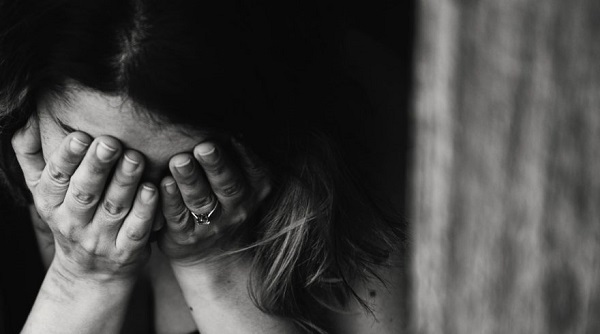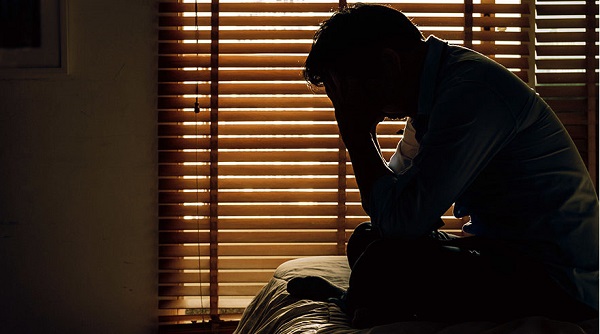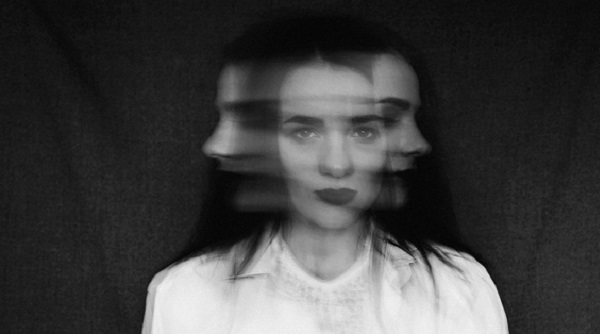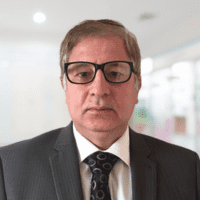Depression
Depression is a mood disorder that causes a persistent feeling of sadness and loss of interest. Also called major depressive disorder or clinical depression, it affects how you feel, think, and behave and can lead to a variety of emotional and physical problems. You may have trouble doing normal day-to-day activities, and sometimes feel as if life isn’t worth living.

Symptoms of Depression
Although depression may occur only once during your life, people typically have multiple episodes. During these episodes, symptoms occur most of the day, nearly every day, and may include:
- Feelings of sadness or hopelessness
- Anger, frustration, even over small matters
- Loss of interest or pleasure in most or all normal activities
- Sleep disturbances, including sleeplessness or sleeping too much
- Tiredness and lack of energy, so even small tasks take extra effort
- Less appetite and weight loss or increased cravings for food and weight gain
- Anxiety and restlessness
- Slowed thinking, speaking, or body movements
- Feelings of guilt about past failures or self-blame
- Trouble thinking, making decisions, and remembering things
- Frequent thoughts of death, suicidal thoughts, suicide attempts, or suicide
- Unexplained physical problems, such as back pain or headaches
Depression is more than just feeling sad. It’s not a sign of weakness; you can’t just “get over it” quickly. It may require long-term treatment. But don’t get discouraged. Most people with depression feel better with medication, psychotherapy, or both.
Depression Symptoms In Children And Teens
Common signs and symptoms of depression in children and teenagers are similar to those of adults, but there can be some differences.
- In younger children, symptoms of depression may include sadness, worry, pain, refusing to go to school, or being underweight.
- In teens, symptoms may include sadness, feeling negative, anger, poor performance or poor attendance at school, feeling misunderstood and extremely sensitive, using recreational drugs or alcohol, eating or sleeping too much, self-harming, loss of interest in everyday activities, and avoidance of social interaction.
Depression Symptoms In Older Adults
Depression is not a normal part of growing older, and it should never be taken lightly. Unfortunately, depression often goes undiagnosed and untreated in older adults, and they may feel reluctant to seek help. Symptoms of depression may be different or less evident in older adults, such as:
- Memory difficulties or personality changes
- Physical aches or pain
- Fatigue, loss of appetite, sleep problems, or loss of interest in sex — not caused by a medical condition or medication
- Often wanting to stay at home rather than go out to socialise or do new things
- Suicidal thinking or feelings, especially in older men
When to See A Doctor?
If you feel depressed, make an appointment to see your doctor or mental health professional as soon as you can. If you’re reluctant to seek treatment, talk to a friend or loved one, any health care professional, a faith leader, or someone you trust.
Causes of Depression
It’s not known what causes depression. As with many mental disorders, a variety of factors may be involved, such as:
- Biological Differences.
People with depression can have changes in their brains that doctors can see in scans. These changes might help explain why someone feels sad or unmotivated, but scientists are still figuring out exactly what they mean. - Brain Chemistry.
Neurotransmitters are natural brain chemicals that likely contribute to depression. Recent research shows that changes in the function and effect of these neurotransmitters and how they interact with neurocircuits involved in maintaining mood stability may significantly affect depression and its treatment. - Hormones.
Changes in the body’s balance of hormones may be involved in causing depression. Hormone changes can result with pregnancy and during the weeks or months after delivery (postpartum) and from thyroid problems, menopause, or several other conditions. - Inherited Traits.
Depression is more common in people whose blood relatives also have this condition. Researchers are trying to find genes that may be involved in causing depression.
Risk factors
Depression often begins in the teens, 20s, or 30s, but it can happen at any age. More women than men are diagnosed with depression, but this may be due in part because women are more likely to seek treatment.
Factors that seem to increase the risk of developing or triggering depression include:
- Certain personality traits, such as low self-esteem and being too dependent, or negative.
- Stressful events, such as physical or sexual abuse, the death or loss of a loved one, a complex relationship, or financial problems.
- Blood relatives with a history of depression, bipolar disorder, alcoholism, or suicide.
- Being lesbian, gay, bisexual, or transgender, or having variations in the development of genital organs that aren’t male or female (intersex) in an unsupportive situation.
- History of other mental health disorders, such as anxiety disorder, eating disorders, or post-traumatic stress disorder.
- Abuse of alcohol or recreational drugs.
- Severe or chronic illness, including cancer, stroke, chronic pain, or heart disease.
- Certain medications, such as some high blood pressure medications or sleeping pills.
Complications In Depression
Depression is a severe disorder that can affect you and your family. Depression often gets worse if it isn’t treated, resulting in emotional, behavioral, and health problems that affect every area of your life.
Examples of issues associated with depression include:
- Excess weight or obesity, which can lead to heart disease and diabetes
- Pain or physical illness
- Alcohol or drug misuse
- Anxiety, panic disorder, or social phobia
- Family problems, relationship difficulties, and work or school problems
- Social isolation
- Suicidal feelings, suicide attempts, or suicide
- Self-hurt, such as cutting
- Premature death from medical conditions
Prevention from Depression
There’s no sure way to prevent depression. However, these strategies may help:
-
- Take steps to control stress, increase your resilience, and boost your self-esteem.
- Reach out to family and friends, especially in times of crisis, to help you weather rough spells.
- Get treatment at the earliest sign of a problem to help prevent depression from worsening.
- Consider getting long-term maintenance treatment to help prevent a relapse of symptoms.
Diagnosis of Depression
Your doctor may determine a diagnosis of depression based on the following:
- Psychiatric evaluation.
Your mental health professional asks about your symptoms, thoughts, and feelings. You may be asked to complete a questionnaire to help answer these questions. In some cases, depression may be linked to an underlying physical health problem. - Lab tests.
For example, your doctor may perform a blood test called a complete blood count or test your thyroid to ensure it functions properly.
Types of Depression
Symptoms caused by major depression can vary from person to person. To clarify the type of depression you have, your doctor may add one or more specifiers. A specifier means that you have depression with specific features, such as:
-
- Anxious distress — depression with unusual restlessness or worry about possible events or loss of control.
- Mixed features — simultaneous depression and mania, which includes elevated self-esteem, talking too much, and increased energy.
- Melancholic features — severe depression with lack of response to something that used to bring pleasure and associated with early morning awakening, worsened mood in the morning, significant changes in appetite, and feelings of guilt.
- Atypical features — depression that includes the ability to temporarily be inspired by happy events, increased hunger, excessive need for sleep, reaction to rejection, and a heavy feeling in the arms or legs.
- Psychotic features — depression accompanied by delusions or hallucinations, which may involve personal inadequacy or other negative themes.
- Catatonia — depression that includes motor activity that involves either uncontrollable and purposeless movement or fixed and inflexible posture.
- Peripartum onset — depression that occurs during pregnancy or in the weeks or months after delivery (postpartum).
- Seasonal pattern — depression related to changes in seasons and reduced exposure to sunlight.
Other Disorders That Cause Depression Symptoms
Several other disorders, such as those below, include depression as a symptom. It’s important to get an accurate diagnosis to get appropriate treatment.
- Bipolar I and II disorders:
These mood disorders include mood swings that range from highs (mania) to lows (depression). It’s sometimes difficult to distinguish between bipolar disorder and depression. - Cyclothymic disorder:
Cyclothymic disorder involves highs and lows that are milder than those of bipolar disorder. - Disruptive mood dysregulation disorder:
This mood disorder in children includes chronic and severe irritability and anger with frequent extreme temper outbursts. This disorder typically develops into depressive disorder or anxiety disorder during the teen years or adulthood. - Persistent depressive disorder:
Sometimes called dysthymia, this is a less severe but more chronic form of depression. While it’s usually not disabling, persistent depressive disorder can prevent you from functioning normally in your daily routine and from living life to its fullest. - Premenstrual dysphoric disorder:
It involves depression symptoms associated with hormone changes that begin a week before and improve within a few days after the onset of your period and are minimal or gone after the completion of your period. - Other depression disorders:
These include depression that’s caused by the use of recreational drugs, some prescribed medications or another medical condition.
Treatment of Depression
Medications and psychotherapy are effective for most people with depression. Your primary care doctor or psychiatrist can prescribe medications to relieve symptoms. However, many people with depression also benefit from seeing a psychiatrist, psychologist or other mental health professional.
Here’s a closer look at depression treatment options:
Medications
Many types of antidepressants are available, including those below. Be sure to discuss possible significant side effects with your doctor or pharmacist.
- Selective Serotonin Reuptake Inhibitors (SSRIs):
Doctors often start by prescribing an SSRI. These drugs are considered safer and generally cause fewer bothersome side effects than other types of antidepressants. SSRIs include citalopram, escitalopram, fluoxetine, paroxetine, sertraline, and vilazodone. - Serotonin-Norepinephrine Reuptake Inhibitors (SNRIs):
Examples of SNRIs include duloxetine, venlafaxine, desvenlafaxine, and levomilnacipran. - Atypical Antidepressants:
These medications don’t fit neatly into any of the other antidepressant categories. They include bupropion, mirtazapine (Remeron), nefazodone, trazodone, and vortioxetine. - Tricyclic Antidepressants:
These drugs — such as imipramine, nortriptyline, amitriptyline, doxepin, trimipramine, desipramine, and protriptyline — can be very effective but tend to cause more severe side effects than newer antidepressants. So tricyclics generally aren’t prescribed unless you’ve tried an SSRI first without improvement. - Monoamine Oxidase Inhibitors (MAOIs):
MAOIs — such as tranylcypromine, phenelzine, and isocarboxazid — may be prescribed, typically when other drugs haven’t worked, because they can have serious side effects. Using MAOIs requires a strict diet because of dangerous (or even deadly) exposure to foods — such as certain cheeses, pickles, and wines — and some medications and herbal supplements. Selegiline, a newer MAOI that sticks on the skin as a patch, may cause fewer side effects than other MAOIs. These medications can’t be combined with SSRIs. - Other Medications:
Other medications may be added to an antidepressant to enhance antidepressant effects. Your doctor may recommend combining two antidepressants or adding medications such as mood stabilizers or antipsychotics. Anti-anxiety and stimulant medications also may be added for short-term use.
Finding The Right Medication For Depression
If a family member has reacted well to an antidepressant, it may be one that could help you. Or you may need to try a combination of medications before you find one that works. It requires patience, as some medications need several weeks or longer to take full effect and for side effects to ease as your body adjusts.
Risks Of Suddenly Stopping Medication
Don’t stop taking an antidepressant without talking to your doctor first. Antidepressants aren’t considered to cause addiction, but sometimes physical dependence (which is different from addiction) can occur.
Stopping treatment suddenly or missing some doses can cause withdrawal-like symptoms, and quitting suddenly may make depression even worse. Work with your doctor to slowly and safely decrease your dose.
Antidepressants And Pregnancy
If you’re pregnant or breastfeeding, some anti-depressants may cause increased health risk to your unborn child or nursing child. Talk with your doctor if you become pregnant or you’re planning to become pregnant.
Antidepressants And Increased Suicide Risk
Most antidepressants are generally safe. In some cases, children, teenagers, and young adults under age 25 may have an increase in suicidal thoughts or behavior when taking antidepressants, especially in the first few weeks after starting or when the dose is changed.
Anyone taking an antidepressant should be watched closely for worsening depression or unusual behavior, especially when starting a new medication or with a change in dosage. If you or someone you know has suicidal thoughts when taking an antidepressant, immediately contact a doctor or get emergency help.
Keep in mind that antidepressants are more likely to reduce suicide risk in the long run by improving mood.
Psychotherapy for Depression
Psychotherapy is a general term for treating depression by talking about your condition and related issues with a mental health professional. Psychotherapy is also known as talk therapy or psychological therapy.
Different types of psychotherapy can be helpful for depression, such as cognitive behavioral therapy or interpersonal therapy. Your mental health professional may also recommend other types of therapies. Psychotherapy can help you:
- Adjust to a crisis or other current difficulty.
- Identify negative beliefs and behavior and replace them with healthy, positive ones.
- Take a look at relationships and experiences and develop positive interactions with others.
- Find better ways to cope and solve problems.
- Identify issues that contribute to your depression and change behaviors that make it worse.
- Get back your sense of satisfaction and control in your life and help ease depression symptoms, such as hopelessness and anger.
- Learn to set simple goals for your life.
- Develop the ability to tolerate and accept distress using healthier behaviors.
Alternate Formats For Therapy
Depression therapy formats that are an alternative to face-to-face office sessions are available and may be an effective option for some people. Therapy can be provided, for example, as a computer program, through online sessions, or using videos or workbooks. Programs can be guided by a therapist or be independent.
Depression is a growing concern in Pakistan and needs to be addressed. Sehatyab is a leading platform in Pakistan providing counseling sessions to those suffering from depression. It gives a chance to those affected by depression to book their one-on-one virtual therapy sessions with the best psychologists in Pakistan.
Hospital And Residential Treatment
In some people, depression is so severe that a hospital stay is needed. This may be necessary if you can’t care for yourself properly or when you’re in immediate danger of harming yourself or someone else. Psychiatric treatment at a hospital can help keep you calm and safe until your mood improves.
Some people may also benefit from partial hospitalization or day treatment programs, which provide the patient support and counseling needed to control symptoms.
Other Treatment Options For Depression
For some people, other procedures, sometimes called brain stimulation therapies, may be suggested:
- Electroconvulsive Therapy (ECT)
In ECT, electrical currents are passed through the brain to affect the function and effect of neurotransmitters in your brain to relieve depression. ECT is usually used for people who don’t get better with medications, can’t take antidepressants for health reasons, or are at high risk of suicide. - Transcranial Magnetic Stimulation (TMS)
TMS may be an option for those who haven’t reacted to antidepressants. During TMS, a treatment coil placed against your scalp sends brief magnetic pulses to stimulate nerve cells in your brain that are involved in mood regulation and depression.
Our Doctors for Depression Treatment
Dr. Aneel Kumar
Psychiatrist
MBBS (L.U.M.H.S), FCPS (Psychiatry – CPSP), Associate Professor of Psychiatry Jinnah Medical and Dental College Karachi
Experience: 12+ years
Dr. Muhammad Ather
Psychiatrist
MBBS (RMU), DPM (Cardiff University, UK), MRCPsych (Royal College of Psychiatrist, London UK), CCT (Royal College of Psychiatrist, UK), Assistant Prof of Clinical Psychiatry
Experience: 28+ years
Ms. Maryam Khan
Clinical Psychologist
BSc (Psychology), MSc (Psychology) – QAU Islamabad, PGDCP (Clinical Psychology), Certified: Hypnotherapist (NGH, USA), Play Therapist, Psycho-sexual Disorder Therapist, Cognitive-behavioral Therapist
Experience: 8+ years
Dr. Ali Ajmal
Clinical Psychologist
MSc, M.Phil. Applied Psychology (Punjab), PhD (Clinical Psychology), Advanced diploma in clinical psychology (ADCP)
Experience: 11+ years
Our blogs on Depression

Common Symptoms of Depression

ڈپریشن، اضطراب، غصہ، او سی ڈی اور سٹریس کی علامات اور علاج
ذہنی صحت کی اہمیت بھی اتنی ہی اہم ہے جس قدر جسمانی صحت کی۔ ہمارے پورے جسم کے افعال کو ہمارا دماغ کنٹرول کرتا ہے۔ یہ جتنا بہتر رہے گی اتنا اچھا ہی ہمارا جسم کام کرے گا۔







